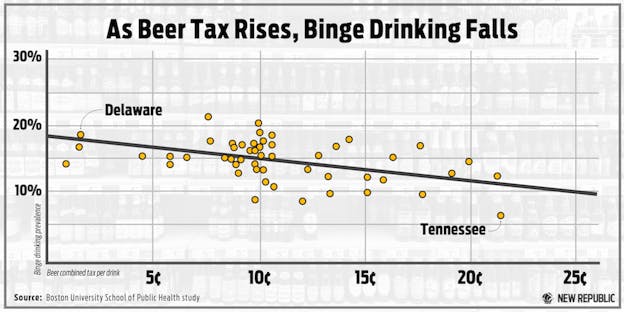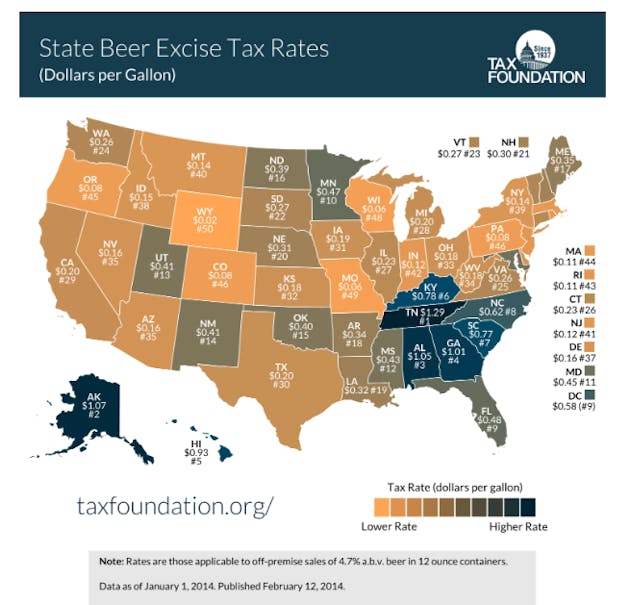As the government learned during Prohibition, an outright ban on alcohol isn't an effective way to stop Americans from boozing. But a new study suggests that more subtle changes to the law could help curb binge drinking.
The study, conducted by Boston University School of Public Health researchers and published this week in the journal Addiction, examined alcohol taxes nationally over a ten-year period and found that raising the price of drinks could help curb excessive drinking. Specifically, a 1 percent increase on beer, wine, and liquor prices due to taxes was linked to a 1.4 percent decrease in binging adults.

The researchers defined binge drinking as consuming five or more drinks for men and four or more for women. "This has significant public health implications, because binge drinking causes more than half of nearly 90,000 alcohol-attributable deaths in the U.S. each year, and accounts for three-quarters of the $224 billion in annual economic costs," Ziming Xuan, the lead author of the study and assistant professor of community health sciences at Boston University, said in an email.
Alcohol taxes vary by state. According to the Tax Foundation, total taxes on beer range from $0.02 per gallon in Wyoming to $1.17 per gallon in Tennessee.

(The Tax Foundation created similar maps for wine and spirits.)
Xuan said further research could create a stronger link between taxes and other alcohol-related events, such as drunk driving and alcohol-related violence. The Centers for Disease Control and Prevention (CDC) reports that one in six adults binge drink, and statistics by the National Institute on Alcohol Abuse and Alcoholism (NIAAA) show that in 2012, 40.1 percent of college students engaged in binge drinking.
